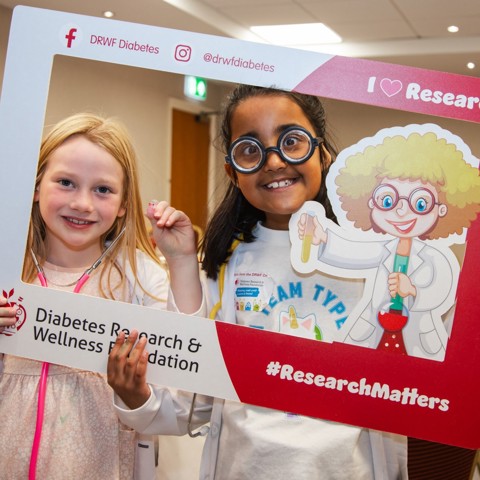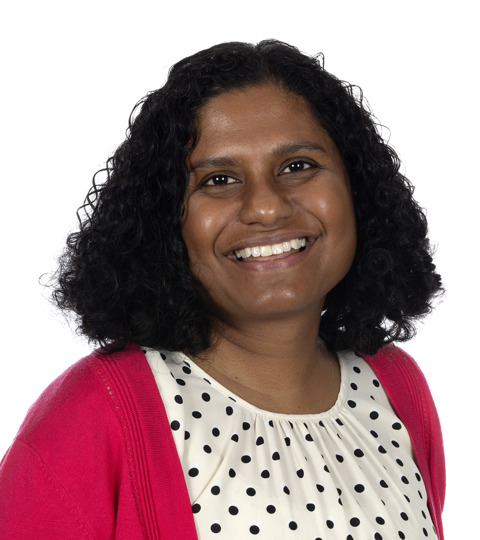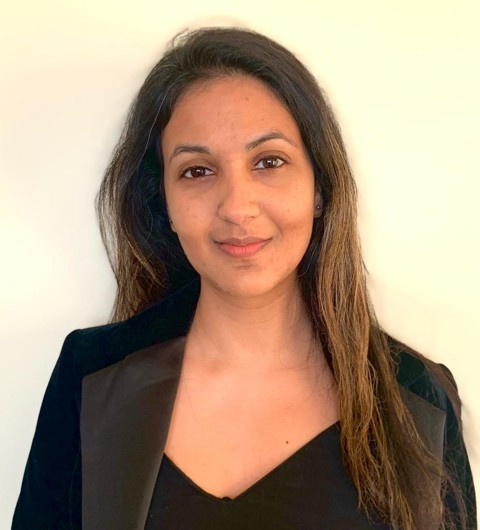
DRWF Podcast: Transition of diabetes care from youth to adult
We look at the impact of transitioning from paediatric to adult care for young people living with diabetes.
In this edition of the DRWF Living With Diabetes podcast, host Claire Levy talks to two doctors who deal with the transition from paediatric to adult care for young people living with diabetes, to discuss what it means for them, their parents and carers.
Listen the DRWF Living With Diabetes Podcast episode 35 here
Dr Renuka Dias
Consultant Paediatric Endocrinologist
Birmingham Women's and Children's Hospital (BWCH)
Dr Meera Ladwa
Clinical Lead for Type 1, Transition and Young Adult Diabetes at Newham University Hospital, London
Specialty clinician for Barts NHS Trust


What does transition of diabetes care mean for young people?
Dr Dias: “A good transition process is making sure that a young person and their family feel ready to move onto the next phase of their life, which is adult care, adult life, which involves all sorts of different things. They are a bit more independent around their own diabetes care. They feel more comfortable about talking to doctors on their own but also understand what their diabetes means right now and perhaps in the future, and what that that might look like for them in in adult care.”
Dr Ladwa: “The transition is a process, not an event. It is a gradual process and what that looks like and the pace it goes is going to be a little bit different for everybody, depending on you as an individual, but also depending on where your service is and how it is set up, because it doesn't work quite the same way everywhere.”
Dr Dias: “I work in a standalone children's hospital, which means the transition process probably is slightly different to units where there is an adult service, and a paediatric service located in the same hospital. We can see children or young people in our outpatient clinic up until their 19th birthday.
“If they have to come to the emergency department because they are unwell, we cannot see them as their children's diabetes team beyond the age of 16. If they need emergency hospital care they would go to their adult service. That can be quite a big jump for young people.
“We only offer a gradual transfer process, to a section of our young people who may choose to go to a different hospital, because that is closer to their home or, they have another family member going there.
“Our adult service is in a different location physically from our children's service. Sometimes the children's department and adult department will be in the same building, even next to each other. That's fab.
“You might have to travel quite far to your new adult service, because some adult services closer to home might not offer some of the treatments, for example, insulin pump therapy.”
Continued access to devices for diabetes care
Dr Dias: “If you are on some form of technology like hybrid, closed loop or another technology, then your adult provider should continue with that. There is no discussion that that should change. The process for getting on a pump or a hybrid closed loop pump, or technology might be slightly different in a children's service compared to an adult service. Once you are on a particular technology, that prescription and everything associated with it, including refresher education and when your pump goes out of warranty, should all continue within your adult service. Please do not worry about that.”
It is estimated that around 90% of all diabetes in children is for type 1 diabetes, with less than 10% for type 2 or other forms of diabetes. However, these figures are changing.
Dr Ladwa: “The young people I look after are aged between 16 and 25, and of those under my care, 30% have type 2 diabetes. I look after a lot of young people with type 2. I think that perhaps I'm a little bit unusual in that just because of where I'm working. But our numbers are growing all the time, and I think that's going to reflect what happens more and more across the country.
“In many ways the transition process, going from children's to adult care, the principles are the same because it is all about the young person themselves getting a better understanding of their own condition. Having the confidence to know they can manage their condition and where to ask for help and feeling empowered to be the person in control and have a say and input into what happens in their care. That is what transition is all about. It is all about that process of becoming an adult.”
For young people sometimes diabetes care is the last thing on their minds. How do you struggle with that for them?
Dr Dias: “From age 16 we start talking to young people about moving forward. It is about making sure that they are really prepared because then if they are really prepared, that move movement should be very smooth, because you have got them in a place where actually diabetes is the last thing on their mind, that their head is full of all the new adventures that they're planning in terms of education or work or family or other bits of life, and the diabetes is there.
“They have got enough infrastructure behind them, education and support, to move to adult services and not slip through the nets and be lost to follow-up, which is one of the key things that we are aiming to not happen.”
“We always leave the door open if someone under children's services does not come to their transition appointments. If they get back in touch, we pick them up again. We're still here, don't feel stupid, don't feel embarrassed to come and speak to us, because sometimes people just aren't ready, and they have to be ready in their own minds.”
Dr Ladwa: “Like they say, with great freedom comes great responsibility. If you treat people as an adult, then they understand how to behave as an adult.
“One of the nicest things in my job to see young people go from a little bit scared, nervous, and then blossom into this really mature, thoughtful, articulate person telling me about what they are hoping and planning to do, what their interests are. It is wonderful. It is very much more an adult-to-adult conversation.”
Has change to continuous glucose monitoring (CGM) and insulin pumps made a difference for young people and making that transition?
Dr Ladwa: “Things have changed so much in such a short time.”
Dr Dias: “Hybrid closed loops are just a game changer for both parents and young people. Young people are more independent. They feel more confident about doing stuff without the need to manage their diabetes in such an active way. They are able to participate in more sports or, team events – and their parents feel much more comfortable. There is an aspect of independence. Parents always are saying to me, ‘I've been able to sleep for the first time in years’. It is an amazing thing for a parent. But then how much how much more amazing is it for a young person?”
Dr Ladwa: “You and I know that as adults, we all have a lot of what is called “life admin”, like car insurance and tax returns. If you have diabetes, unfortunately, you are loaded with an additional big bag of life admin, right? Diabetes admin. And it is about having to do those tedious and sometimes quite frustrating tasks that are necessary and important.
Dr Dias: “For the young people that we look after with diabetes, it is about maximizing their life, not about diabetes being the focus. The hybrid closed loop has made my job very easy in many cases. Each person's transition journey is different and is individual to them. And if the transition journey is not working for them, if that process is not working for them to let us know because we will change, what we are doing to support them in a better way.”
Dr Dias: “It is their diabetes. We are here to support them.”
Living With Diabetes
Listen to the interviews in full as part of the DRWF Living With Diabetes podcast series
Living With Diabetes is a Blue Aurora media production for DRWF. Copyright 2025 Diabetes Research & Wellness Foundation. All rights reserved.
I would like to make a regular donation of
I would like to make a single donation of
There are lots of ways to raise money to support
people living with all forms of diabetes.
Bake, Swim, Cycle, Fly ... Do It For DRWF!
Fundraise with us
Recent News


